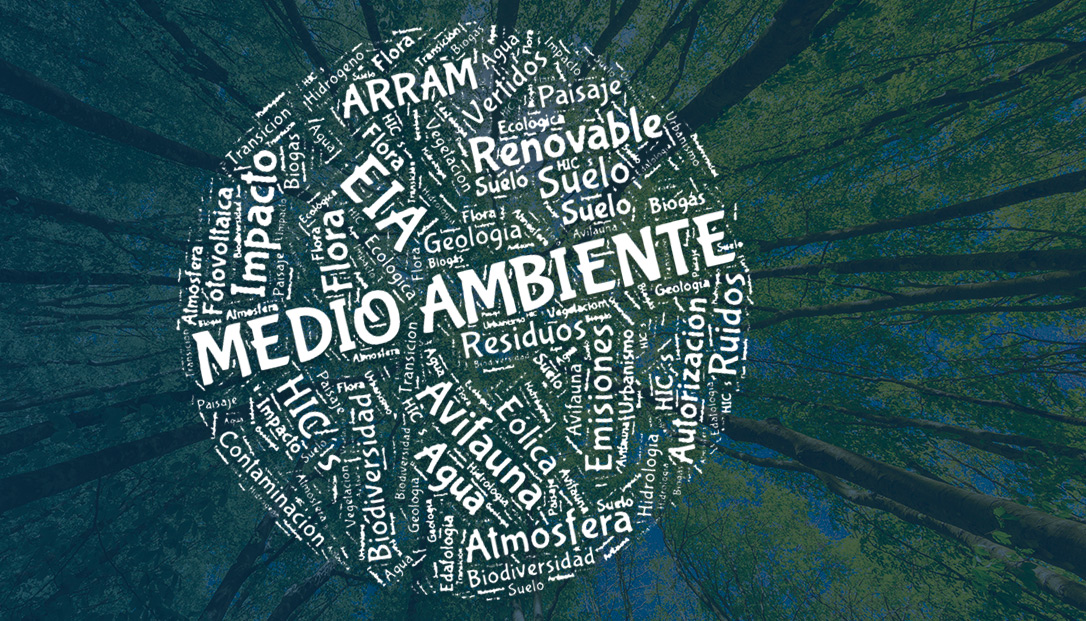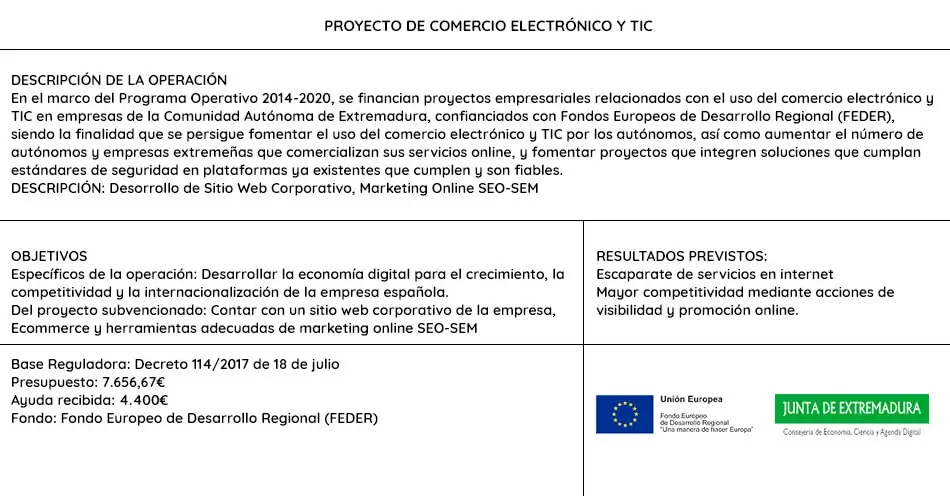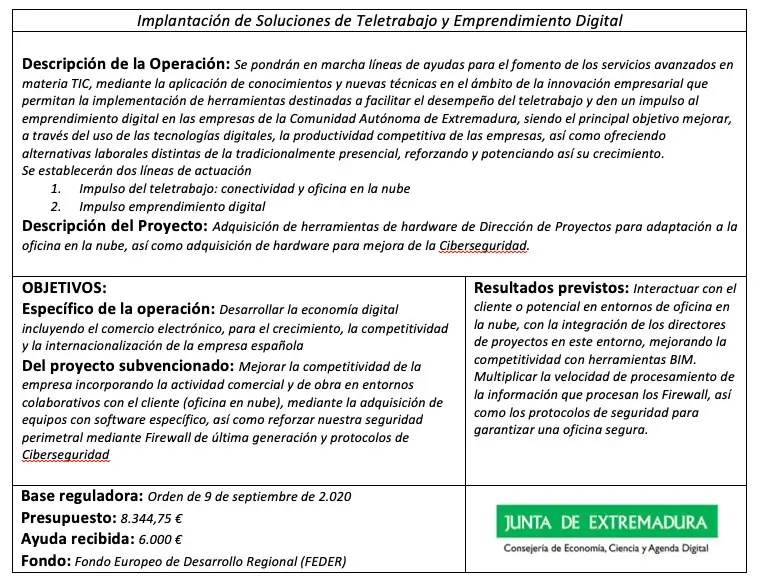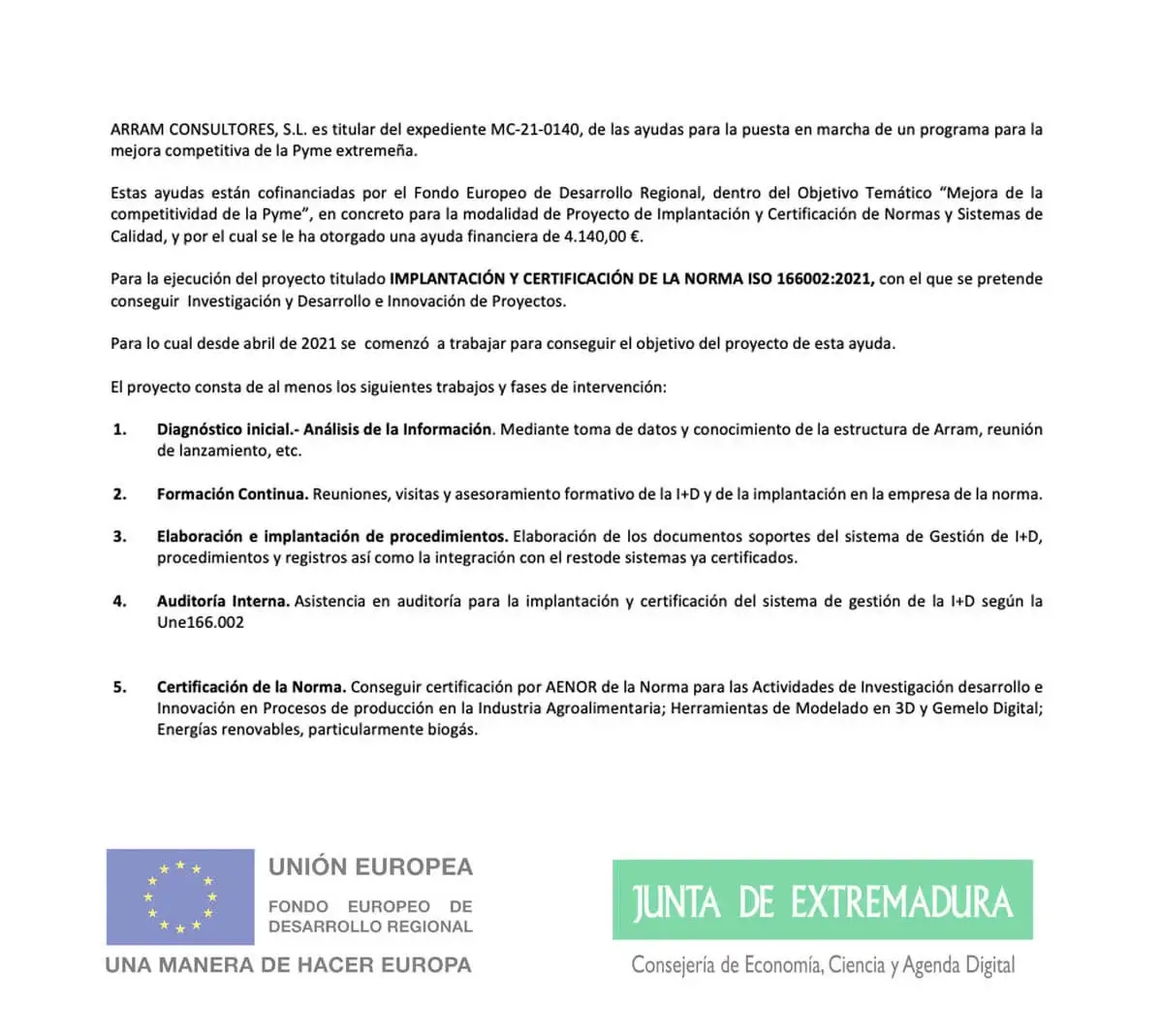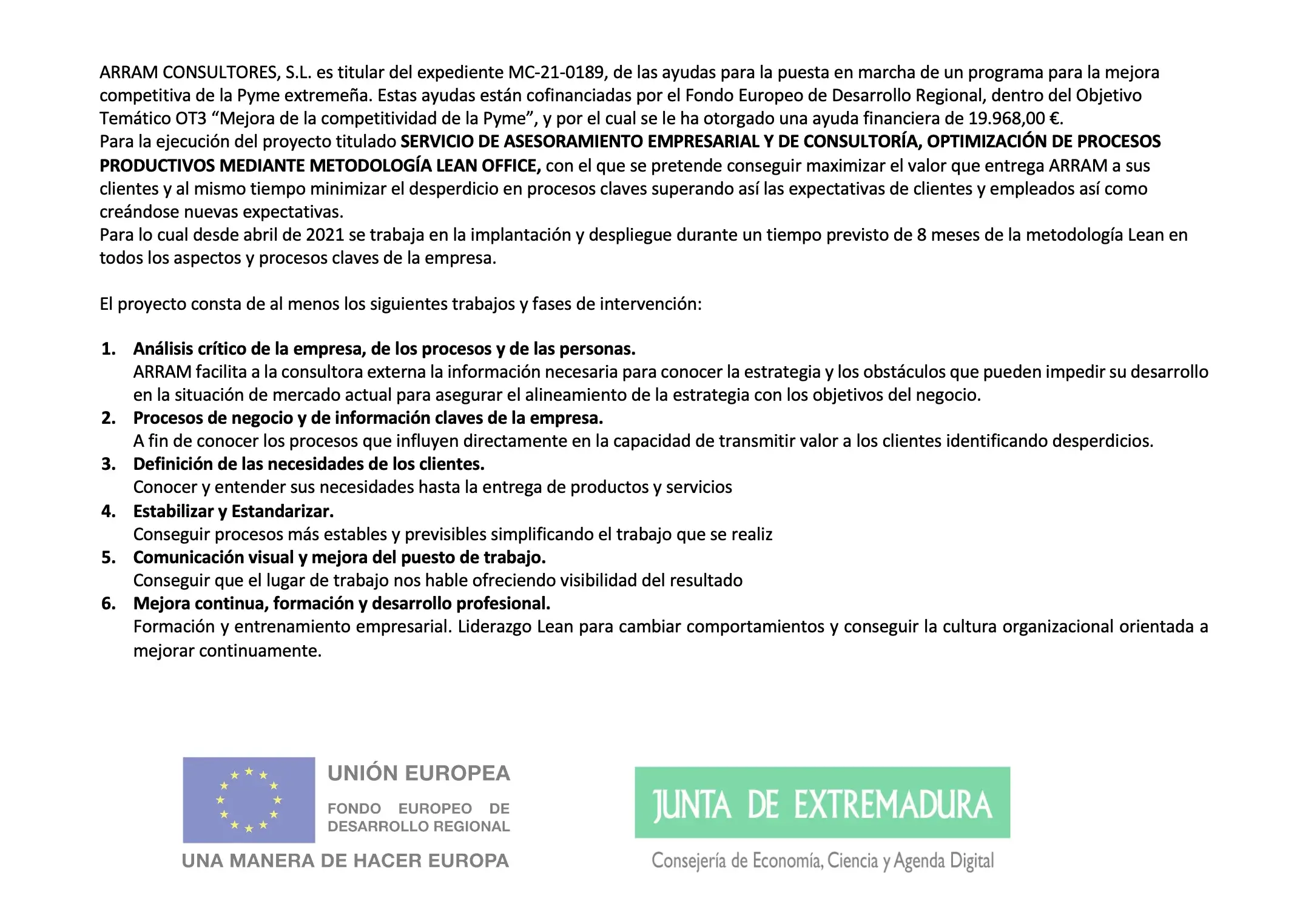Environment and Sustainability
From the Environment and Sustainability department, which operates across the Arram Group, we incorporate environmental and sustainability criteria from the design phase of any project















Because not all engineering firms are the same, the purpose of this department is to contribute to the protection and improvement of the environment, accompanying and advising our clients to operate responsibly and sustainably from an environmental perspective, ensuring that their projects comply with all regulatory requirements needed to obtain various licences:
ENVIRONMENTAL CONSULTANCY
Consultancy, advice, processing, and support on the environmental aspects of projects to obtain any environmental licence: EIS, SEA, Integrated Environmental Authorisation, Environmental Impact Report, Land Classification, Urban Compatibility.
Consultancy, Environmental Procedures, and Specific Studies
![]() Initial Phases
Initial Phases
Environmental Pre-feasibility Studies
Environmental Due Diligence
Project Start-Up Documents
![]() Administrative Procedures
Administrative Procedures
Environmental Authorisations
Environmental Assessments of Plans and Programmes — Strategic
Assessments
Environmental Assessments of Projects — Environmental Impact
Rural Land Qualifications
Forest Fire Prevention Plans
![]() Specific Studies
Specific Studies
Environmental Risk Analysis
Qualitative and Quantitative Risk Analysis (ERA and QRA)
Urban Compatibility Studies
Vulnerability Studies
Landscape Studies
Hydrological and Flooding Studies
Hydrogeological Studies
Impact Studies on Water Bodies
Noise Studies
Light Pollution Studies
Glare Studies
Electromagnetic Field Studies
Impact Studies on Protected Areas

FIELDWORK
Because the environment cannot be managed from the office, we have excellent field technicians who bring the reality of the environment into project design: specialists in wildlife, ornithologists, botanists, environmental technicians...
Environmental fieldwork is crucial for obtaining accurate and detailed information about ecosystems and the impacts of human activities. This data informs decision-making in terms of conservation, sustainable management, and the mitigation of environmental impacts.
![]() Fauna Studies:
Fauna Studies:
Annual Bird Cycle Studies
Species-specific Bird Surveys
Bat Studies
Mesomammal Studies
Herpetofauna Studies
Fish Studies
![]() Flora Studies:
Flora Studies:
Botanical inventories, phytosociological studies
![]() Biodiversity Studies
Biodiversity Studies
![]() Corrective Measure Studies
Corrective Measure Studies
![]() Restoration Studies of Degraded Areas
Restoration Studies of Degraded Areas
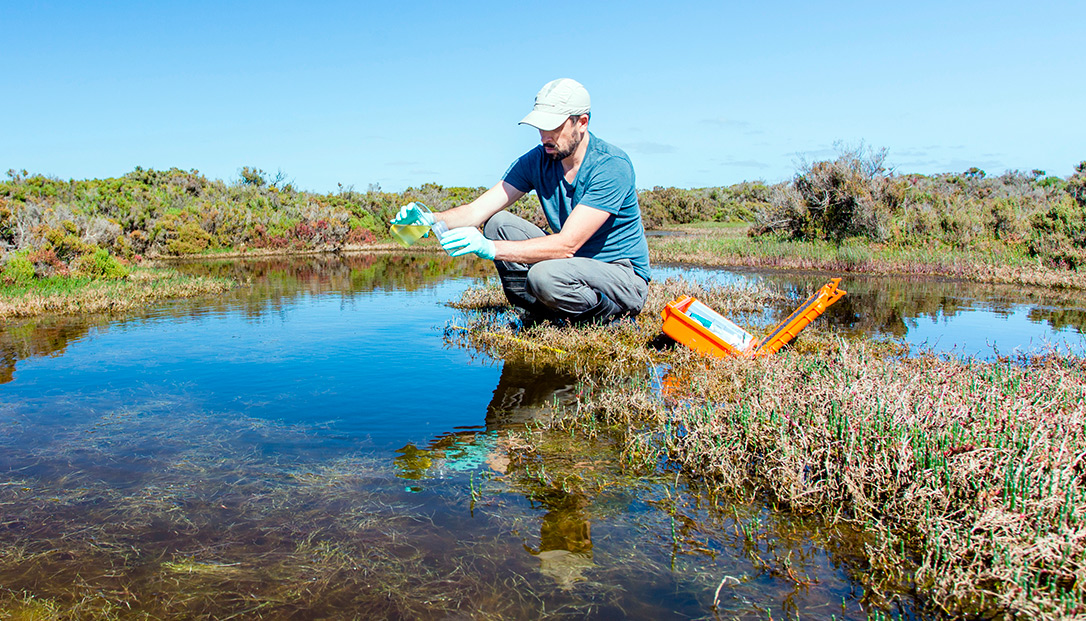
ENVIRONMENTAL MONITORING OF PROJECTS
Environmental monitoring of projects is a continuous and systematic process designed to assess and manage the environmental impact of a project throughout its life cycle.
The main objective is to ensure that project activities are conducted sustainably and in compliance with established environmental requirements.
This process involves data collection, information analysis, and the implementation of measures to minimise or mitigate negative effects on the natural environment.
Implica la vigilancia constante de los impactos ambientales, la implementación de medidas correctivas y preventivas, y la comunicación transparente de los resultados a todas las partes interesadas. Es una herramienta esencial para garantizar que los proyectos se desarrollen de manera responsable y en armonía con el entorno natural.
![]() Environmental Coordination
Environmental Coordination
It is an integrated approach that ensures that the environment is considered at every stage of a project. It facilitates informed decision-making, regulatory compliance, and the minimisation of negative environmental impacts, contributing to long-term sustainability.
![]() Environmental Site Management
Environmental Site Management
Its goal is to supervise and ensure that all activities are carried out in a way that minimises environmental impact and complies with established legal and environmental requirements. It involves the active management of environmental aspects throughout all phases of construction to ensure that sustainable practices are followed and damage to the natural environment is avoided.
![]() Monitoring and Follow-Up Plans
Monitoring and Follow-Up Plans
Strategic documents that set out how ongoing monitoring and follow-up of the environmental impacts of a project, activity or process will be carried out throughout its life cycle. These plans are essential to ensure that environmental commitments are met, problems are detected early and corrective action is taken when necessary.

Guiding the Future with Responsibility
Our Commitment to the Environment and Sustainability
#ARRAMisMORES
-
